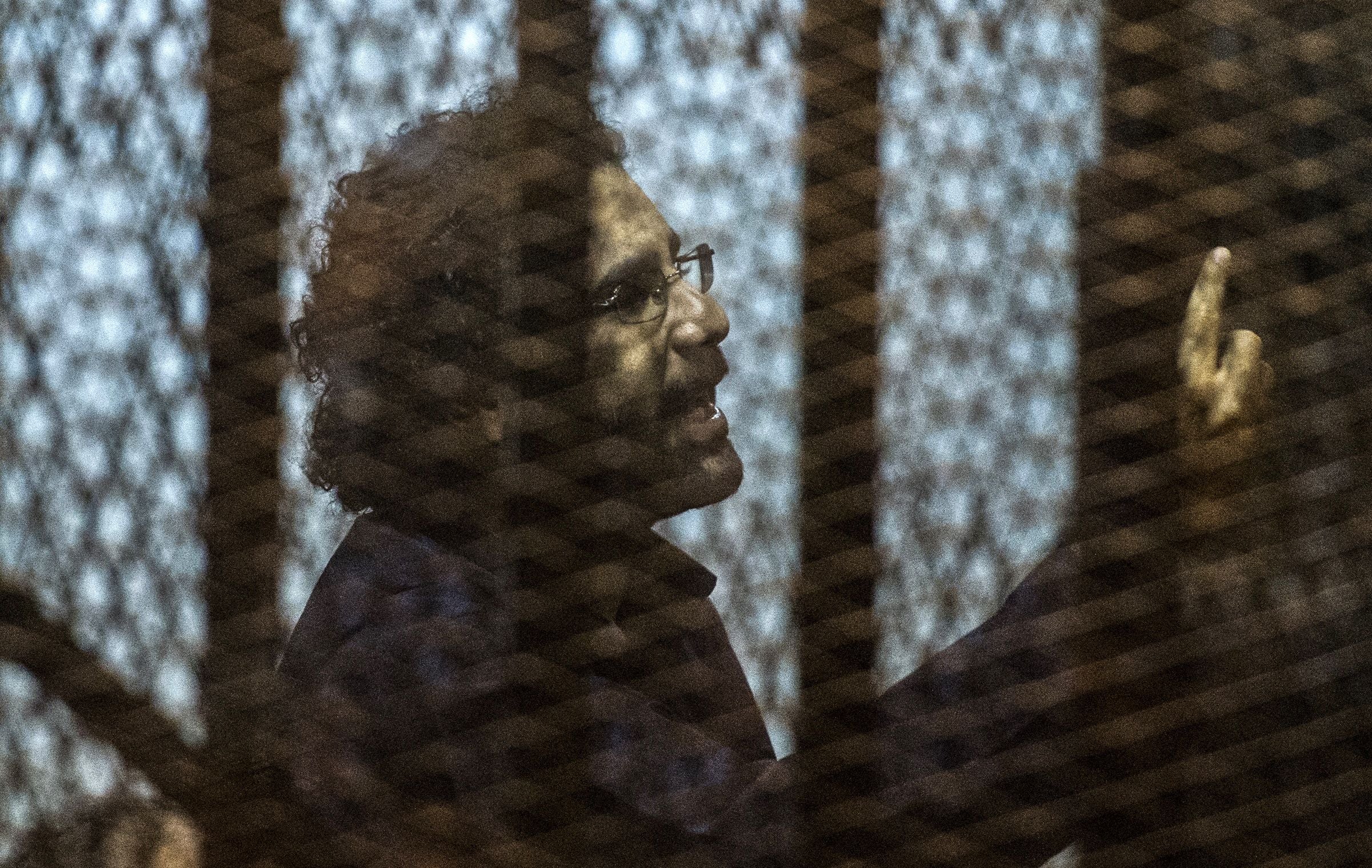Time is running out for the British father on hunger strike in an Egyptian prison
Alaa Abdel-Fattah has not been allowed to see the sun, to exercise, to have a book or to know the time since 2019, writes Bel Trew


Time is running out. Alaa Abdel Fattah, 40, a British citizen, veteran human rights defender, and a father, is six weeks into a full and punishing hunger strike in Cairo’s notorious Tora Prison.
His basic demand is his right under Egyptian law: a visit from British embassy officials. If something doesn’t change, he might die. There is only so much a body and mind can take. Water and rehydration salts cannot sustain a person for much longer.
In a message sent to The Independent from prison, the British-Egyptian software developer jailed for what human rights groups say are trumped-up charges of spreading false information vowed to keep going. He repeated this during his latest prison visit on Thursday, the last one he will have for a month. Since the prison authorities have now banned him from penning letters, he bid goodbye to his loved ones as they fear he may die during the enforced period of silence. His mother, Laila Soueif, a London-born mathematics professor, said after the visit on Thursday he had lost a lot of weight and was weak.
This, of course, sets a worrying precedent for all Brits in Egypt. It is particularly worrying when the treatment of Abdel Fattah is considered – which is so bad his sister Mona Seif says it feels “vindictive”. Human rights groups including Amnesty International say he was tortured on entry to prison and since then has been repeatedly targeted.
He has not been allowed to see the sun, exercise, read books, or know the time. His mother tried on Thursday to bring him a clean sheet, a radio and a Mickey Mouse magazine, all things allowed under Egyptian law. They were refused on the grounds they were “contraband”.
At one point the prison authorities banned his family from bringing in basic spices so he could occupy his time experimenting with the prison food, simply because he expressed a preference for it in a letter.
Prison guards have also emptied every single cell above, below and to the left and right of him, because he used to enjoy occupying his hours speaking to fellow inmates in neighbouring cells through the walls. Now he is not permitted a bedsheet. He is barred from the right to a mattress and sleeps on a concrete floor.
Despite all this, the Egyptian authorities have vehemently and repeatedly denied mistreating prisoners, crushing dissent or violating human rights.
But Abdel Fattah is not the only Brit to have faced difficulties in the country. Several British journalists, including me, have been deported from Egypt, had their press accreditation revoked, or fled under threat of potential arrest. This paints a deeply concerning picture.
And so the British government should realise the gravity of this situation. Even if you leave aside the devastating consequences for Abdel Fattah’s family and for human rights, if he continues to be subjected to this terrible treatment in violation of Egyptian law, and – God forbid – perishes, it makes a mockery of our passport and our so-called special relationship with the country.
Egyptian president Abdel Fatah el-Sisi – the country’s former army chief who stormed to power in 2014 after a coup – is supposedly a close British ally. Of all countries in the world, the UK is the single largest overseas investor in Egypt. Our nations have a complicated and tricky history but a long and often close one too – does that count for nothing?
President Sisi has the power to pardon Abdel Fattah or to sanction the use of Egyptian legal procedures used by other dual nationalities that would allow the software developer to relinquish his Egyptian citizenship, and be deported from Egypt to the UK. There he would join his family, who are also British.
These are options Abdel Fattah’s family hopes the British authorities can encourage Mr Sisi to pursue before it’s too late. They can start with a consular visit.
To keep up to speed with all the latest opinions and comment, sign up to our free weekly Voices Dispatches newsletter by clicking here
A third-generation secular activist, Abdel Fattah has been in and out of jail for around a decade, detained under every Egyptian president in his lifetime. Right now, he is just a few months into another five-year sentence, even though he has been in jail since 2019.
Now, under such a strict hunger strike, he may not make it. The consequences of this happening are too horrendous to even fathom. The clock is ticking and the British government must act fast.






Join our commenting forum
Join thought-provoking conversations, follow other Independent readers and see their replies
Comments